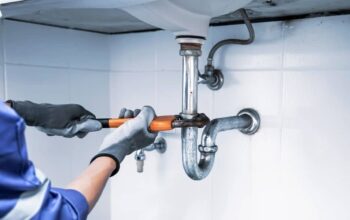Every Greensboro resident has spent weekends driving to farms and enjoying the fresh produce. From its mesmerising collection of ornamental plants or rich produce of earthy mushrooms, the local farms here have a whole experience to offer.
But ask any farm owner, and they will tell you – maintaining a farm is one of the most challenging tasks out there. A key aspect of it is irrigation.
Most farms still use conventional wells and avail well services in Greensboro, NC to meet their irrigation needs.
So, whether you are a hardworking farmer looking for advice or someone who found the pun in the title intriguing, delve into knowing all about how to maintain wells.
Drilling wells
A task well begun is a task half done. Thus, the first step to keeping your wells in good condition is drilling them right.
To drill an ideal well for your farm, here are some things to keep in mind:
Where to drill?
The ideal location to drill is determined by checking geographical formation factors, access to drilling machinery and placement of property lines.
How deep should the well be?
The depth of your well depends on water requirements. The diameter of your well acts as a reservoir. So, the deeper the well, the fewer gallons of water per minute will be required. Deeper wells will also hold more water.
How to know if the water is safe to drink?
According to North Carolina law, every newly dug well must be tested for contaminants and harmful organic matter. Hence, the county’s health department will take care of this for you.
Besides, many water treatment systems can be installed alongside your well to improve water quality further.
Maintaining wells
The latest statistics show that 15 million US households drink water from private wells that are actually not covered by the United States Environmental Protection Agency (EPA). Hence, contamination of private wells can lead to a lot of harm to human health.
As the owner of a private well, you are responsible for the water quality in it. Thus, it is essential to subject your wells to regular checkups.
Some best practices to maintain your wells are:
- Availing well services in Greensboro, NC and running annual tests for mechanical problems, cleanliness, and other microbes and chemicals
- All hazardous materials like paint, varnishes, fertilisers and motor oils should be kept far from wells.
- A professional contractor should be consulted to ensure that the well and household waste disposal systems are far away.
- Ensure that the well cover is intact. The top of the well should be kept at least one foot above the ground.
These practices have been recommended by the National Ground Water Association and have proven helpful for many farms.
Emergency treatment of wells
Do not drink if you have reason to doubt that your well’s water may be contaminated. It is advisable to get professional guidance from the health department before continuing the well water consumption.
Also, boiling the well water can kill most of its germs. The process helps in minimizing the risk of waterborne diseases. However, look for professional advice on chemical contamination and do not attempt home remedies.
Conclusion
Hiring the right well services in Greensboro, NC for drilling, running checks, and maintenance of wells is crucial for smooth functioning. It is best to rely on professional advice regarding water quality.
North Carolina’s health department checks all new wells and certifies whether the water is drinkable.




